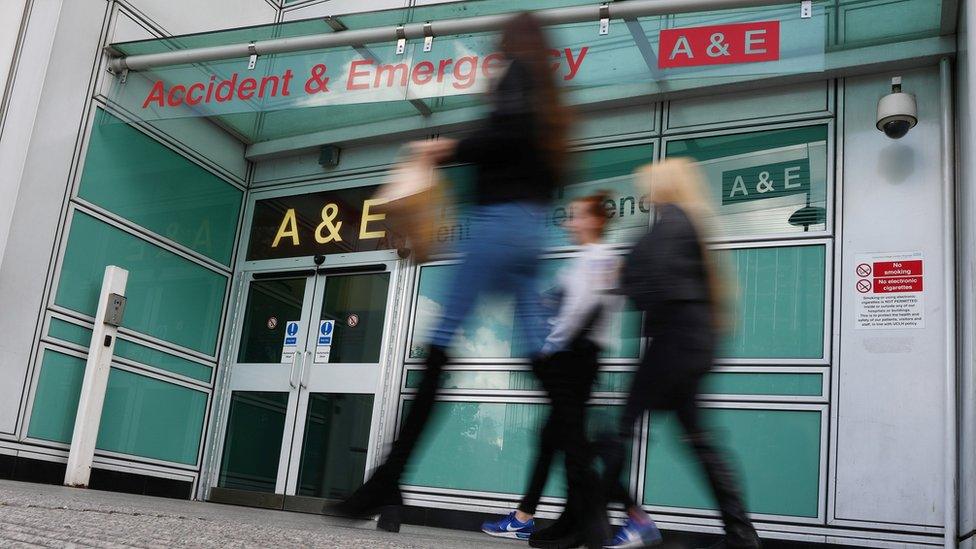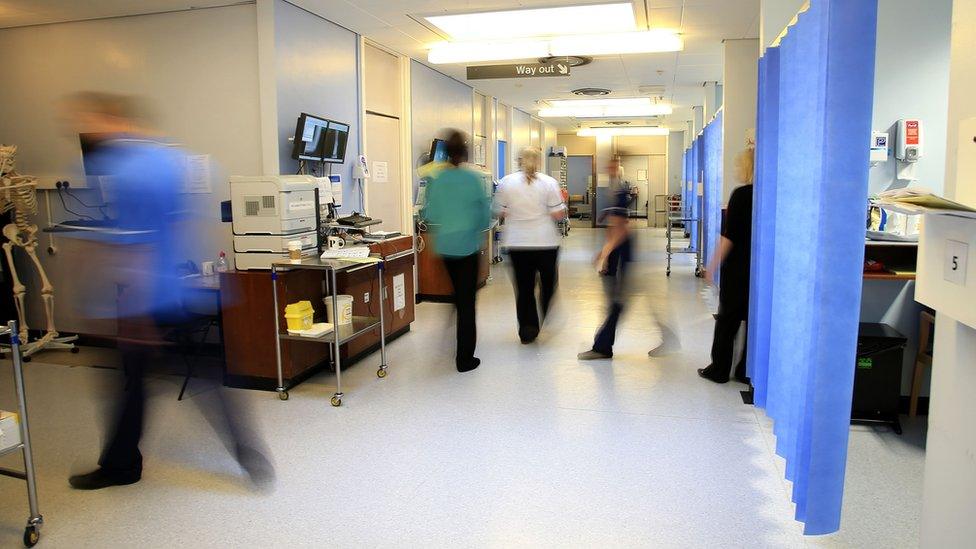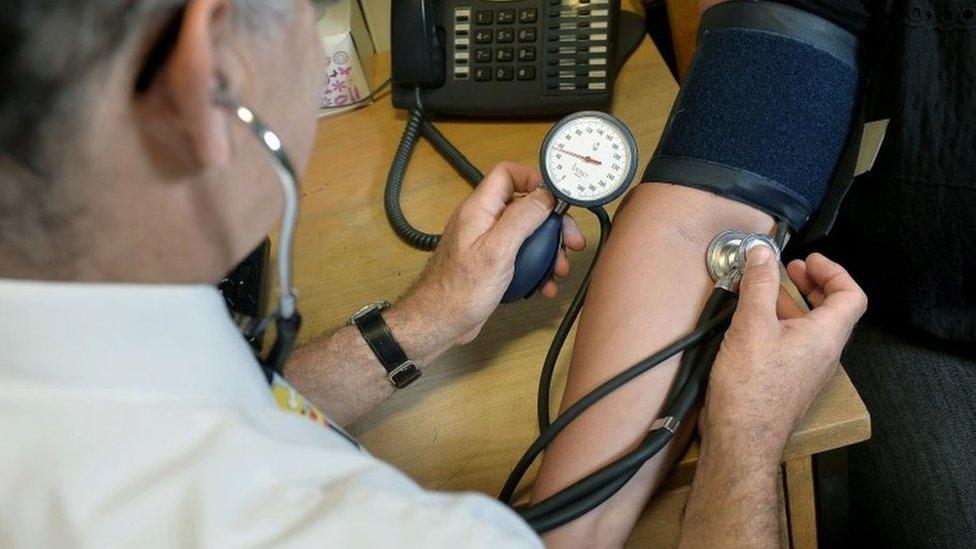Deficit for NHS trusts in England double the amount planned
- Published
- comments

NHS trusts in England have reported a combined financial deficit that was nearly twice the amount planned.
There was a deficit of £960m in the last financial year compared with the £496m they had planned for, the regulator NHS Improvement said.
Acute hospitals were largely responsible, mainly because of increased patient demand, it said.
All other providers, including ambulance and mental health trusts, had collectively underspent, it added.
The latest reported deficit is reached after taking account of extra financial support provided by the government.
Therefore, the Nuffield Trust think tank argued that the true underlying figure was much worse, as the finances had to be patched up with one-off savings and emergency extra cash.
Senior policy analyst Sally Gainsbury said: "Given the huge pressures on NHS providers, it is not at all surprising that the reported deficit for 2017-18 is £960m.
"As we have previously warned, there is a widening gap between what we are asking the NHS to do and what we are funding it to do."
Chris Hopson, chief executive of NHS Providers which represents various services, said a 5% annual increase in NHS funding is needed to match European levels of care.
He told BBC Radio 4's Today: "Everywhere you look you get a sense of the NHS under real pressure."
He said his proposed funding increase equates to an extra 9p on income tax or 7% on VAT, adding: "We need to be realistic about what the nation can afford."
'Substantial money'
Janet Davies, chief executive and general secretary of the Royal College of Nursing, said: "Theresa May and Philip Hammond cannot allow this financial knife-edge to continue.
"Whether the chancellor announces the extra funding in time for the NHS anniversary this summer or waits until the autumn Budget, it must be both substantial and genuinely new money."
The report also highlighted that more than 2,600 patients were waiting longer than 12 months for non-urgent treatment in March - a 75% increase over the year before.
And half of the nation's 10 "best performing" accident and emergency departments were unable to meet waiting time standards in January, February and March, according to the latest quarterly performance figures.
'Incredible resilience'
NHS Improvement said acute hospitals had faced a surge in demand within A&E, particularly over the winter months. Some also spent more to cover vacancies and sickness absence.
It pointed out that 156 of the 234 trusts finished the year either reaching or exceeding their financial targets.
Chief executive Ian Dalton added: "Despite epic challenges, NHS staff up and down the country displayed incredible resilience and saw more patients than ever before within four hours.
"More than two-thirds of providers ended the year on budget or better than planned. Given rising demand and record vacancies, this is an important achievement."
Ministers have promised a new long-term financial plan for the NHS, which is expected within weeks.
In March, Prime Minister Theresa May said she wanted to get away from annual "cash top-ups" and would come up with a blueprint later this year to allow the NHS "to plan for the future".
- Published21 February 2018

- Published27 March 2018
